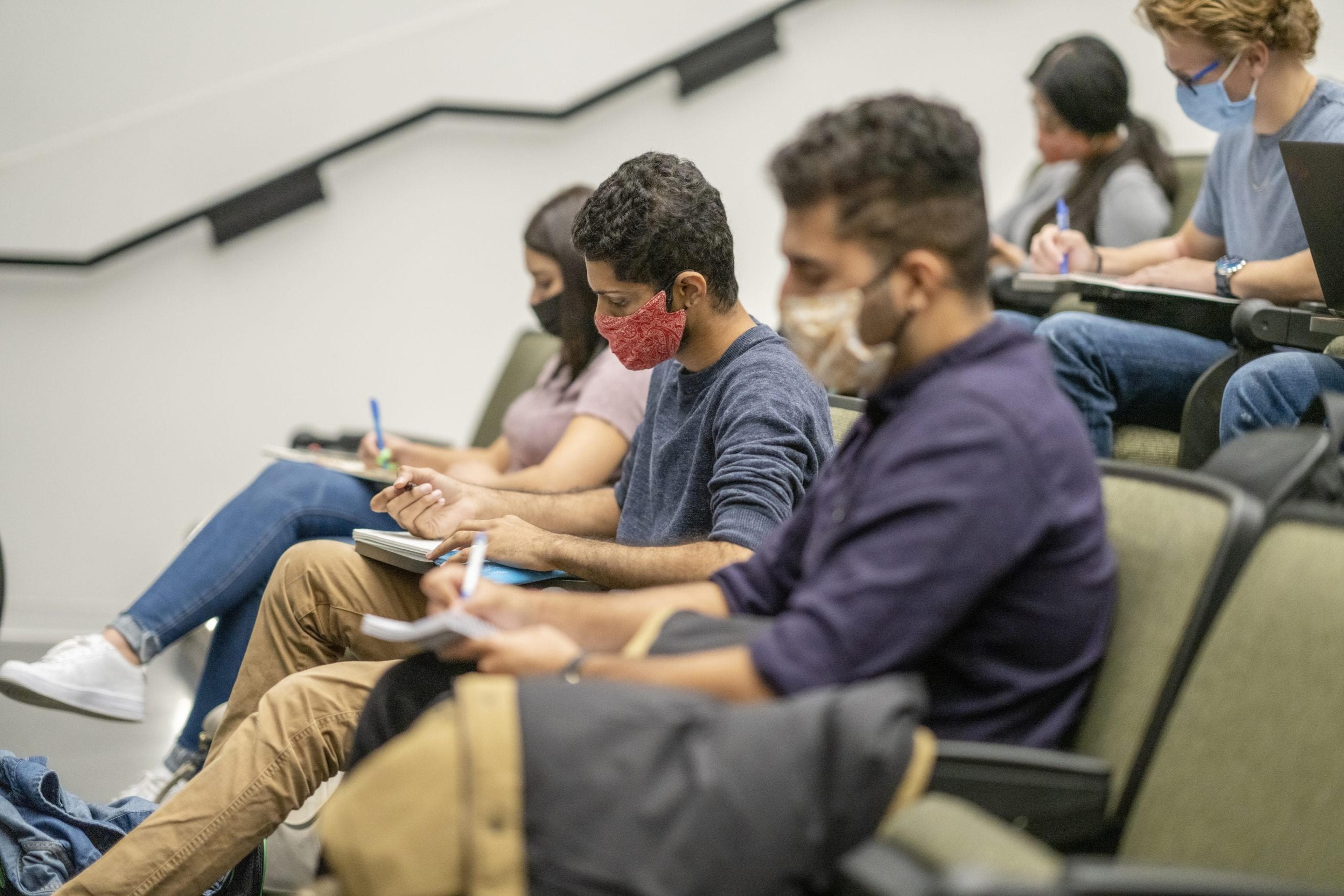U of M Researchers Studying Mental Health Needs on MI Community College Campuses
Julie Bitely
| 3 min read

In Michigan, nearly half of community college students have clinically significant symptoms of a mental health disorder, such as anxiety or depression, but most are not receiving treatment. The COVID-19 pandemic has exacerbated mental health concerns and made it more difficult to access services. With the help of a $53,000 grant from the Blue Cross Blue Shield of Michigan Foundation, University of Michigan researchers are embarking on a study that will assess available mental health resources at the state’s 28 public community colleges and then work with campus leaders and students to identify tailored, evidence-based solutions that would improve student access to mental health care. Shawna Smith, assistant professor of Health Management and Policy at U of M’s School of Public Health and Sara Abelson, co-investigator and lead for Diversity, Equity and Inclusion Projects with the Healthy Minds Network will begin a yearlong exploration of mental health support services available to community college students in the state. “I think there’s going to be some real openness to better serve students,” Smith said. Abelson explained that mental health plays a big role in how well community college students perform academically. Research shows that untreated mental health issues may lead to lower GPAs and lapses in enrollment. Students of color and students facing financial insecurity are the least likely to receive care. Dropping out of school due to unaddressed mental health concerns can have ripple effects throughout a lifetime, impacting physical health, career opportunities and lifetime earnings levels. Community college students might face additional challenges that their counterparts at four-year universities don’t have. About 36% of college students are the first generation in their family to pursue a college education and may not have access to as many resources or a supportive social network. More than two-thirds of community college students work while enrolled in classes, adding to an already full plate and mental load. Smith said the study will hopefully illuminate how community college leaders view the role of mental health and how it fits into their overall mission and mandate. It will also provide a clear picture of mental health services available on campuses and in the surrounding communities or counties colleges are located in. Abelson and Smith expect that each college setting might look very different in terms of what is available and proposed interventions will need to be tailored to each location’s needs. It’s hoped that having a clear picture of what’s needed to better serve students’ mental health could serve as a catalyst to secure funding to support additional services. As the ripple effects of the pandemic continue to be felt, Abelson said helping more people access mental health services will be important. “Everyone is dealing with high burdens of grief,” she said. “It’s an important moment to be thinking about mental health across the board.” Expanding access to care, particularly for communities that face disparities, is part of the BCBSM Foundation’s core mission. “We’re confident that this important work will result in a clearer view of the state of mental health services on community college campuses throughout Michigan,” said Audrey Harvey, executive director and CEO, BCBSM Foundation. “Understanding the need will empower community college leaders to make mental health part of their planning process and hopefully result in improved mental health for a population in need of support.” Related:
Photo credit: Getty Images





